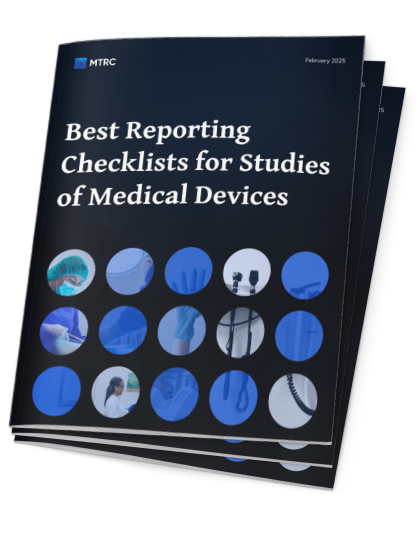In market access, the way clinical results are reported is just as crucial as the study design itself
Clinical evidence is essential for the successful adoption of medical technologies by clinicians, payers, and health technology assessment (HTA) bodies. However, due to tighter budgets and different regulatory pathways, the volume of evidence generated for medical technologies is often significantly lower than for pharmaceuticals. In this context, every published study becomes critically important.
In market access, the quality of clinical evidence is defined not only by the study design but also by the clarity and rigor of its presentation. Our extensive experience across European markets shows that valuable evidence is frequently downgraded due to suboptimal reporting - where key methodological details are missing or results are poorly presented.
At MTRC, we help close the gap between the clinical research output for medical devices and the evidence expectations of HTA and reimbursement authorities in Europe. We offer expert editorial support to refine clinical and health economic manuscripts, ensuring they meet the requirements of market access stakeholders. Additionally, we support the review and enhancement of clinical trial protocols to ensure methodological robustness aligned with reimbursement needs.
How does it work?
Our editorial support follows a structured approach to ensure clinical and economic publications meet the standards of market access stakeholders. The key steps are outlined below:
The client shares the clinical study protocol or completed manuscript with our team. If needed, we conduct a scoping call to understand the context and objectives, including target countries, comparator technologies, and intended clinical indications for market access.
Our Health Economics and Outcomes Research (HEOR) team conducts a thorough review using MTRC’s internal quality standards. We focus on key methodological aspects, completeness of reporting according to international guidelines, and the specific requirements of major European HTA and reimbursement bodies such as NICE (UK), HAS (France), and IQWiG (Germany). Particular attention is given to statistical methods and subgroup analyses.
All edits are tracked, and detailed comments or suggestions are included where appropriate. The review concludes with a debriefing call to present the findings, discuss recommended revisions, and provide guidance for improving the overall quality and market access relevance of the document.
Get insights from MTRC free analytical reports
Explore MTRC’s free analytical reports and white papers for guidance on aligning your clinical manuscripts with European reimbursement and HTA requirements.

Explore MTRC research papers:
Get in touch
Contact us to discuss your needs and learn about our services
